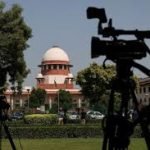The NGT’s direction to the ED under PMLA was beyond its powers and jurisdiction. PMLA deals with criminal activity related to illegal gain, not directly with environmental protection statutes. The NGT’s powers under Section 15 of the NGT Act 2010 do not extend to actions under PMLA or constitutional courts.
The Supreme Court expressed concern about the NGT’s approach, stating that the methodology for penalty should not be a “pound of flesh” in environmental matters.
This judgment addresses an appeal concerning the National Green Tribunal’s (NGT) imposition of environmental compensation and related directions against an industry accused of severe environmental violations.
M/s C.L. Gupta Export Ltd. (Appellant) vs. Adil Ansari & Ors. (Respondents). Respondent No. 1 accused the appellant industry of actively perpetrating environmental degradation and pollution, including extracting ground water, polluting surroundings, and releasing effluents into a tributary of the Ganga. The Centre, Central Ground Water Authority, and District Collector were observed to be “mute spectators”.
Appellant’s Business: The appellant was engaged in manufacturing activities, initially Metal Art Ware, Glass Art Ware, and Thermocol Blocks. Later, it expanded to include Marble Art Ware and Corrugated Boxes. It is an exporter of handicraft items and employs around 7,000 workers, located in a residential area.
NGT Proceedings: The proceedings before the NGT extended over three years, during which various reports were called for from a Joint Committee constituted by the NGT. Initial reports indicated violations of environmental laws, leading to the penalization by imposition of Environmental Compensation (EC).
Compliance & Penalties:
A report dated 07.05.2019 noted ineffective effluent treatment, improper storage of hazardous wastes, and a Thermocol manufacturing unit operating without consent, leading to the closure of the unit and an EC of Rs. 10 lakhs.
Further reports led to a total EC of Rs. 2,49,71,157 for illegal groundwater extraction, which was later reduced to Rs. 1,16,39,727 after a waiver.
The NGT had initially imposed a compensation of Rs. 50 crores based on the appellant’s allegedly admitted turnover, without a rational nexus in computing the penalty.
Despite a report dated 30.07.2021 confirming “full compliance” with prior recommendations/suggestions, the NGT still imposed compensation based on the “polluter pays” principle. However, the report also had reservations, finding the committee’s compensation determination inconsistent with NGT directions and confirming violations related to groundwater extraction.
PMLA Direction: The NGT also directed the Enforcement Directorate (ED) to examine the matter under the Prevention of Money Laundering Act, 2002 (PMLA).
Law Involved
National Green Tribunal Act, 2010 (NGT Act): The NGT exercises powers under Section 15 of this Act for environmental protection and conservation.
Environmental Laws: The case involves various environmental statutes, including the Water Act, 1974 (implied), and regulations pertaining to effluent treatment, hazardous waste management, and groundwater extraction.
Prevention of Money Laundering Act (PMLA), 2002: The NGT directed the ED to examine the matter under PMLA, raising questions about its jurisdiction in such matters.
Public Interest Litigation (PIL): The contours of maintainability of a PIL are relevant, though the Court was disinclined to consider it at the outset.
“Polluter Pays” Principle: The NGT based its compensation imposition on this principle.
Reasoning
NGT’s Penalty Calculation: The Supreme Court noted that the NGT’s initial imposition of Rs. 50 crores based on “admitted turnover” lacked a rational nexus in computing the penalty. It emphasized that the calculation of penalty should be a deterrent measure and referred to the CPCB, 2019 methodology, rather than a flat turnover percentage. The Court found the methodology adopted by the NGT for imposing the penalty was “totally unknown to any principle of law”.
PMLA Jurisdiction: The Court clarified that the NGT’s direction to the ED under PMLA was beyond its powers and jurisdiction. PMLA deals with criminal activity related to illegal gain, not directly with environmental protection statutes. The NGT’s powers under Section 15 of the NGT Act 2010 do not extend to actions under PMLA or constitutional courts.
Compliance and Penalty: The Court observed that despite the appellant bringing all mitigating measures and a report showing “full compliance” by 30.07.2021, the NGT still imposed compensation. While acknowledging reports of “modicum of compliance,” the Court also noted that the NGT’s power to enhance penalties stands.
Proportionality and “Pound of Flesh”: The Court expressed concern about the NGT’s approach, stating that the methodology for penalty should not be a “pound of flesh” in environmental matters. It also stated that the application of mind should be proportionate to the number of pages in the judgment.
Need for Continuous Monitoring: The Court stressed that continuous monitoring and audit of pollution control measures are necessary to ensure a pollution-free, compliance regime, rather than merely imposing penalties. The submissions by the CPCB also indicated a focus on aquifer recharge, water balance monitoring, and recycling of treated water.
Holding
The Supreme Court set aside the NGT’s directions related to the Enforcement Directorate and the Prevention of Money Laundering Act (PMLA), clarifying that such matters fall outside the NGT’s jurisdiction.
While the Court found the methodology for calculating the environmental compensation based on flat turnover to be without a “rational nexus” and not reflective of a deterrent measure, and noted the Rs. 50 crore compensation was “minimal,” it did not overturn the imposed compensation entirely, stating that it would leave avenues open to challenge.
The Court affirmed the principle of environmental compensation but underscored the importance of proportionality and a rational methodology linked to actual environmental damage.
The Court emphasized the need for a continuous monitoring and audit regime for pollution control measures to ensure compliance, which is a key ongoing process.
M/s C.L. Gupta Export Ltd. vs. Adil Ansari & Ors.
Supreme Court: 2025 INSC 1035 (DoJ 22-08-2025)






